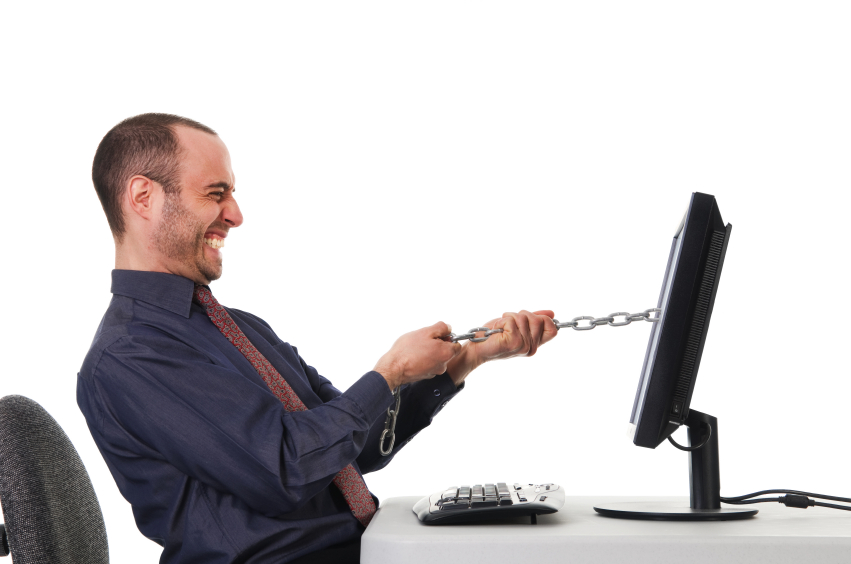We’re more connected than ever, which means it’s harder to disconnect than ever. When coworkers keep different hours than we do, it’s easy to feel like we need to be on call to answer any questions they have. It’s part of being a good team player, right? Someone sends you an email, and you picture them sitting at their computer, completely stuck until they hear back from you.
They aren’t.
Most of the time, they aren’t expecting an answer right away. If it were that urgent, they’d pick up the phone and call you. They don’t expect you to respond until you get in to work the next day.
The expectaction can become self-fulfilling and self-propagating. If we think that everyone else is checking email at all hours, we will, too, to keep the conversation going. Pretty soon, everyone is because no one wants to be the weak link on the team.
If checking email is constantly creating tension between the roles in your life, create email-free zones in your schedule. Give yourself permission now to get work done (or be present) without worrying about your inbox.
- The first hour at work. One of the strengths of the Ivy Lee method is that when you walk into the office, you already know exactly what you need to do. If you didn’t write out your plan for the day before you left yesterday, do it now. Then tackle the top item on your list. Make progress on your priorities before you open Pandora’s Inbox and see what priorities others have for you.
- Family time. You say your family are the top priority in your life? Act like it. When you’re having dinner, put your phone away. Focus on your wife and kids. Give them your attention. Show them they’re important to you, more important than work (or Facebook, Twitter, Angry Birds…) When it comes to spending time with your kids, even the opportunity cost of reading a book can be too high.
- Out with friends. The same thing goes for time out with friends. Spend some time in Quadrant 2—relaxing and strengthening bonds. Be social. Be present. Have everyone stack their phones in the middle of the table; the first one to pick up their phone to check something buys.
- Behind the wheel. You shouldn’t text and drive. You really shouldn’t email and drive. Whatever message you’re expecting, don’t pull-to-refresh at every light. Don’t read another line or two every time traffic slows to a crawl again. If it’s not worth pulling over to the shoulder and turning on your hazards, it will wait. (Even if your car is capable of fully autonomous operation on the freeway, you need to stay alert so you can retake control at a moment’s notice.)
- Before bed. Checking email late at night is hazardous. You create the impression that people can email you at any time and get an immediate response, and you’re opening a can of worms at a time when you should be focused on one thing: getting to bed. If you get sucked in, it will throw off your bedtime routine, you’ll get to bed late, and your productivity tomorrow will suffer.
Start by identifying key times where you’re not going to check email. Make them as arbitrary or as practical as you want. Create email-free zones in your schedule where you know you can focus on things that aren’t email.
The cycle of peer influence can be virtuous. As your coworkers see you setting boundaries and checking email only at appropriate times, they’ll be encouraged to follow that example, too.
Question: How do you limit when you check email? Share your thoughts in the comments, on Twitter, LinkedIn, or Facebook.

